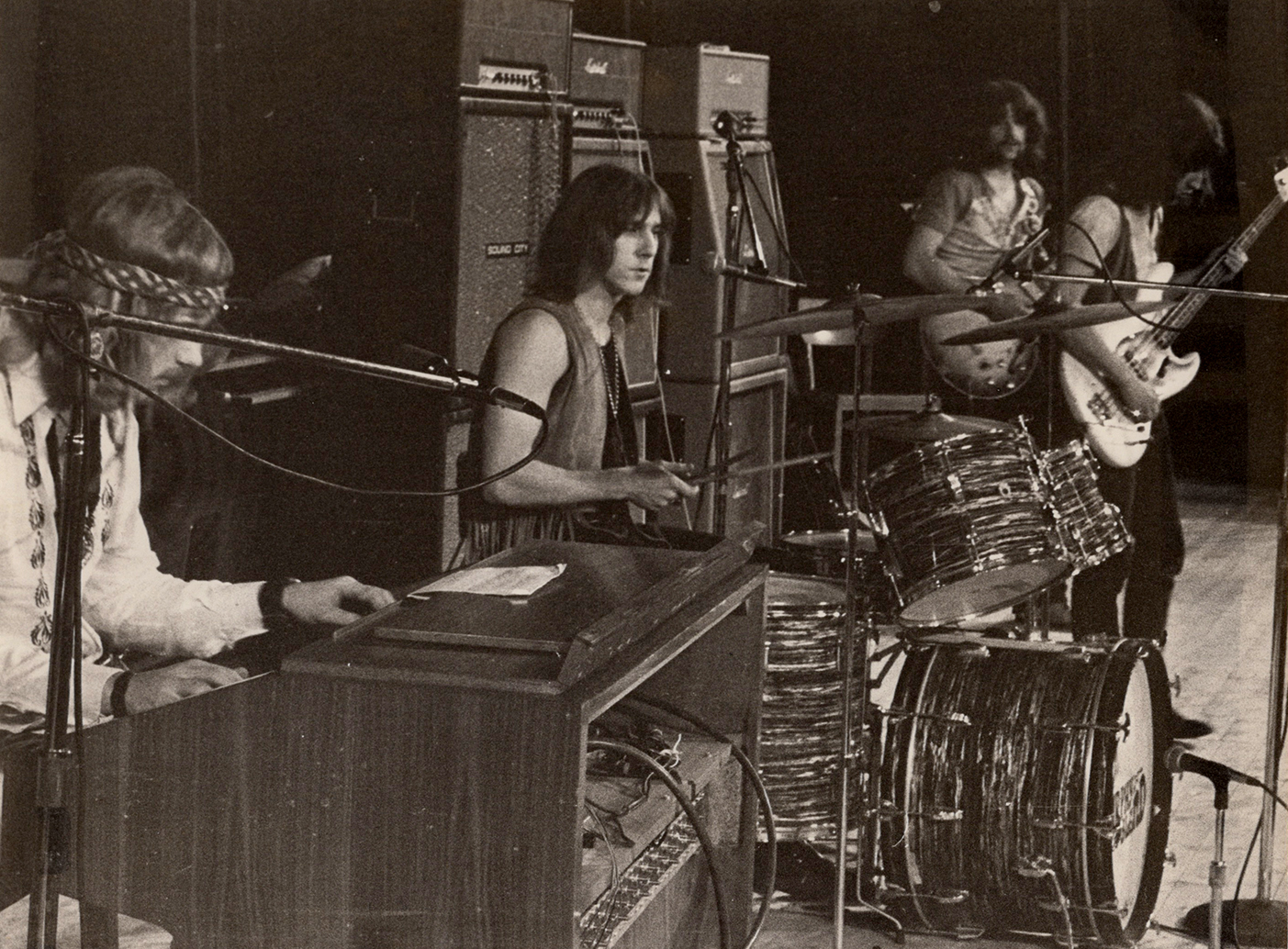Murphy Blend | Blackwater Park | Interview | Echoes of the ’70s
Andreas Scholz was a member of Murphy Blend and Blackwater Park, two incredible German bands from the 1970s.
Murphy Blend, renowned for their heady and psychedelic sound, mesmerized audiences with their intricate melodies and thought-provoking lyrics. Meanwhile, Blackwater Park emerged as a powerhouse of raw hard rock, captivating listeners with their dynamic performances and gritty sound.
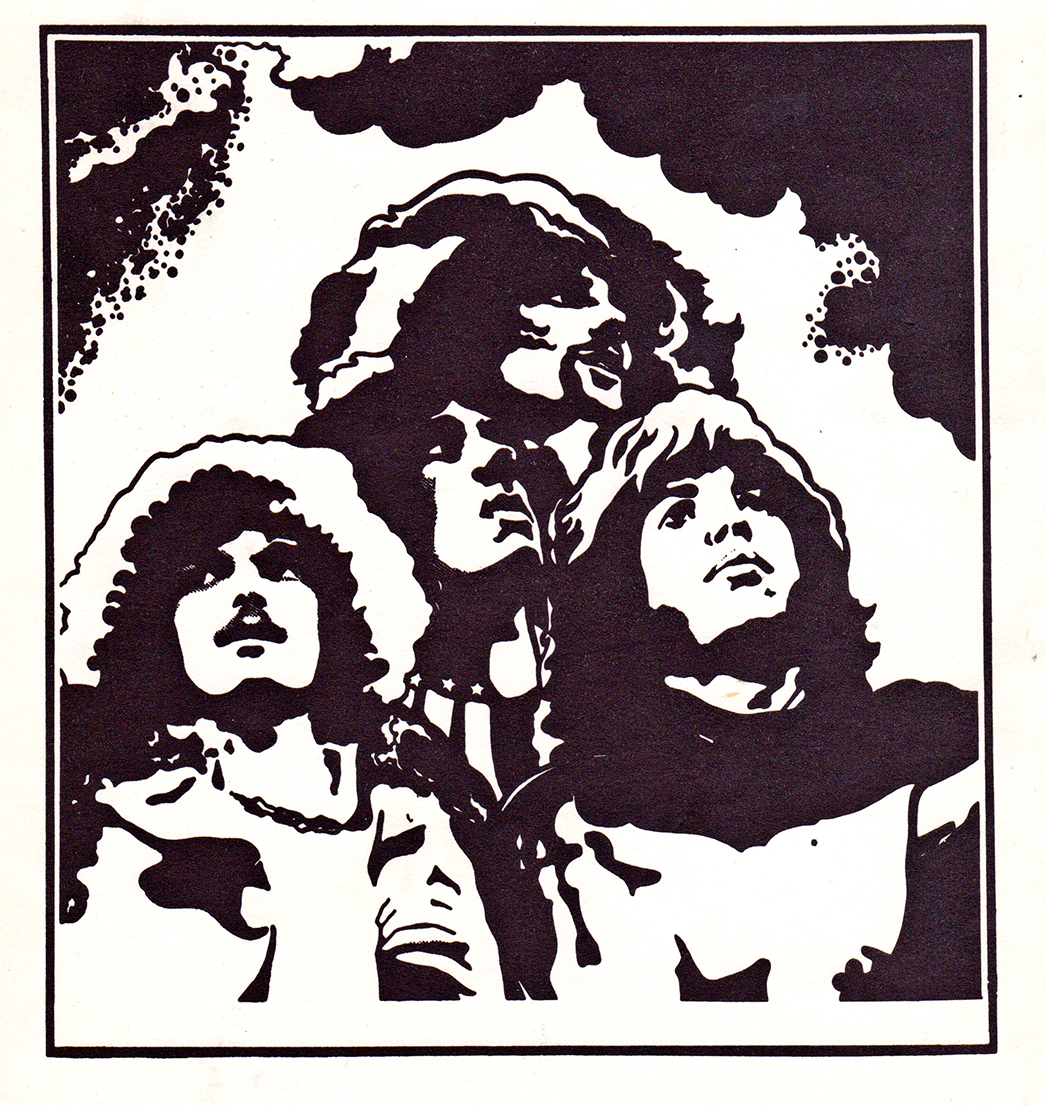
“A highlight was certainly the performance in the Deutschlandhalle, which was packed with 15,000 spectators, as Hendrix’s opening act”
Would you like to share about your upbringing? Where did you all grow up?
Andreas Scholz: Regarding Blackwater Park, except for Richie Routledge, we are all real Berliners, born and raised here. Routledge probably later came to Berlin from Liverpool.
What was it like growing up in post-WWII Germany? Tell us about daily life during your teenage years.
Because of the special political situation, Berlin was divided by the wall during our teenage years. Our life took place exclusively in the western part of Berlin. My memories begin around 1964. A colorful scene developed here with many – mainly – cover bands and performance opportunities. Through the American station AFN, we came into contact with the international beat euphoria, and I was visibly impressed by both the Beatles and the Stones.
Was there a certain moment when you knew you wanted to become a musician? When did you first pick up an instrument?
There wasn’t a special moment for me. But the music that could be heard everywhere on the radio and the appearances of the first cover bands in schools and leisure clubs made me want to join in. Since I had no musical background, I chose the bass guitar as my instrument. I thought that four strings would be easier to play than six strings on a guitar.
What was the scene like in Berlin back in the late ’60s? Were there many bands playing rock music and experimenting?
In the mid-’60s, there was an army of cover bands in Berlin. Only a few managed to assert themselves with their own songs (e.g., The Boots, The Lords). But there were countless performance opportunities in youth clubs, churches, schools, bars, as well as the American and English clubs in the occupying forces’ barracks in West Berlin. Songs by the Beatles, Stones, Cream, Animals, Monkees, Kinks, and many beat bands were covered. Everything the market would bear.
Were you a member of any other bands than Murphy Blend and Blackwater Park? If so, what kind of music did you play? Are there any unreleased materials from those bands?
I started out in 1965 as the bassist for the cover beat band The Boardwalks. After a short time, we became very well-known within Berlin and for several years had up to 6 performances a week with our pop-heavy program. On weekends, we sometimes even played in two different clubs. We especially covered the Beatles and then also the Kinks, Monkees, Bee Gees, New Breed, Box Tops, Fortunes, Turtles, etc.
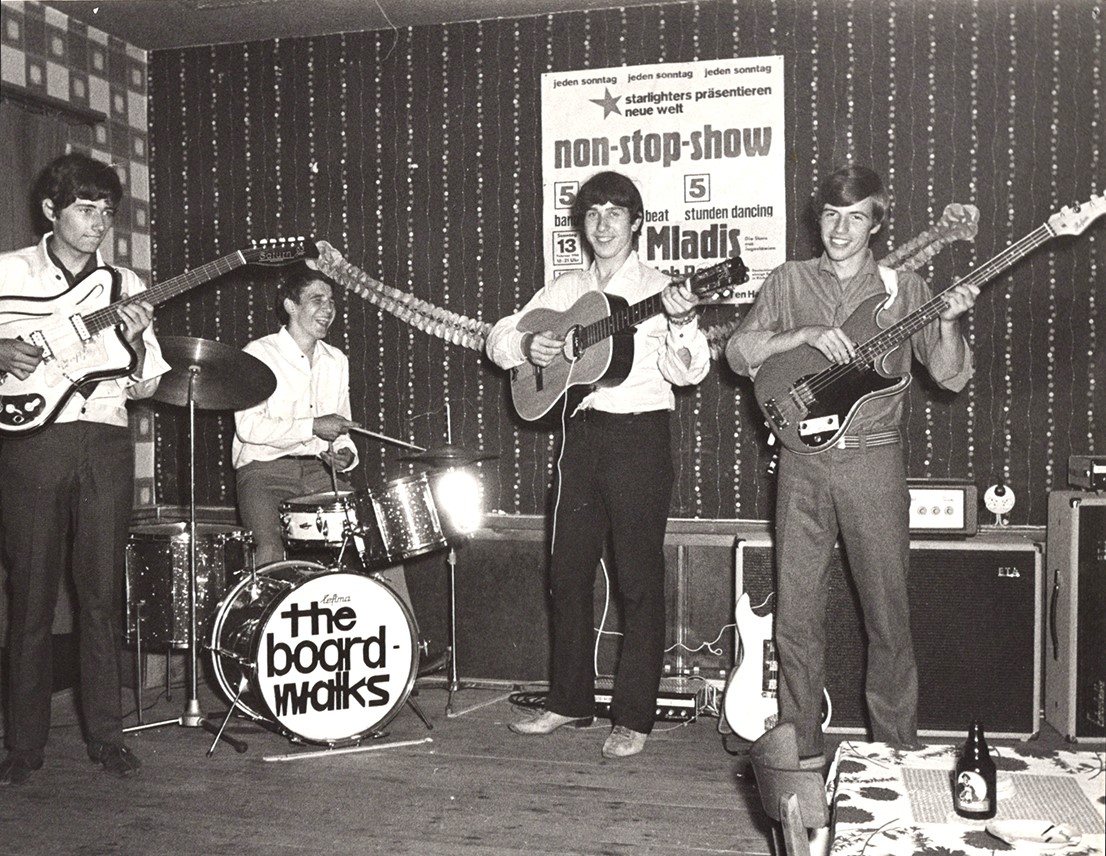
Was there a certain scene you were part of, maybe you had some favorite hangout places? Did you attend a lot of gigs back then?
At that time, in addition to school or training, we were constantly busy, either having gigs or rehearsing new songs. Of course, every now and then we went to gigs of other competitors and then we hung out at Big Eden, Sun, or Beautiful Balloon. When the Rolling Stones gave their legendary Waldbühne concert, which was followed by total destruction, I was, of course, just as there as I was at a Hendrix concert in the Sportpalast.
What led to the formation of Murphy Blend and how did you originally meet the other members of the band?
At the end of the 1960s, the beat boom in Berlin was over and, inspired by international bands, some of the Boardwalks wanted to reorient themselves. So I founded the Murphy Blend Formation with keyboardist Wof-Rüdiger Uhlig, who had only recently joined the Boardwalks, drummer Achim Schmidt, and guitarist Wolfgang Rumler. Our goal is classic rock.
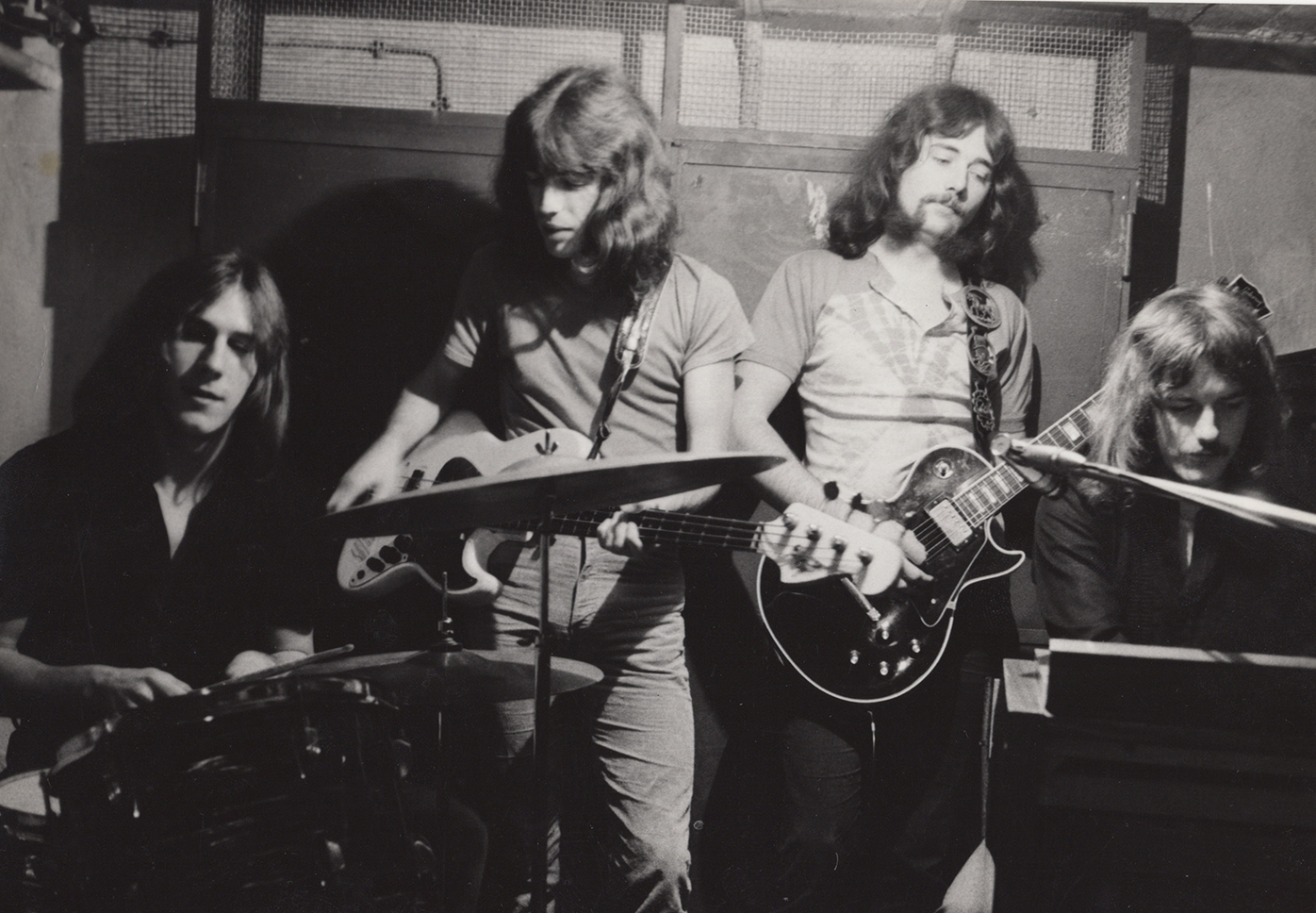
Did the band play a lot of shows before recording your debut album? How did you get signed to the Kuckuck label?
Because of the complicated music, it took some time before we could get back on stage. After several gigs in Berlin, we realized that our style was very well received by the audience. Our manager, Joachim Wilhelm, arranged for us to play a few gigs abroad (e.g., Langelsheim Festival) and then sent test recordings to various record companies. This is how we came into contact with the Kuckuck label in Munich.
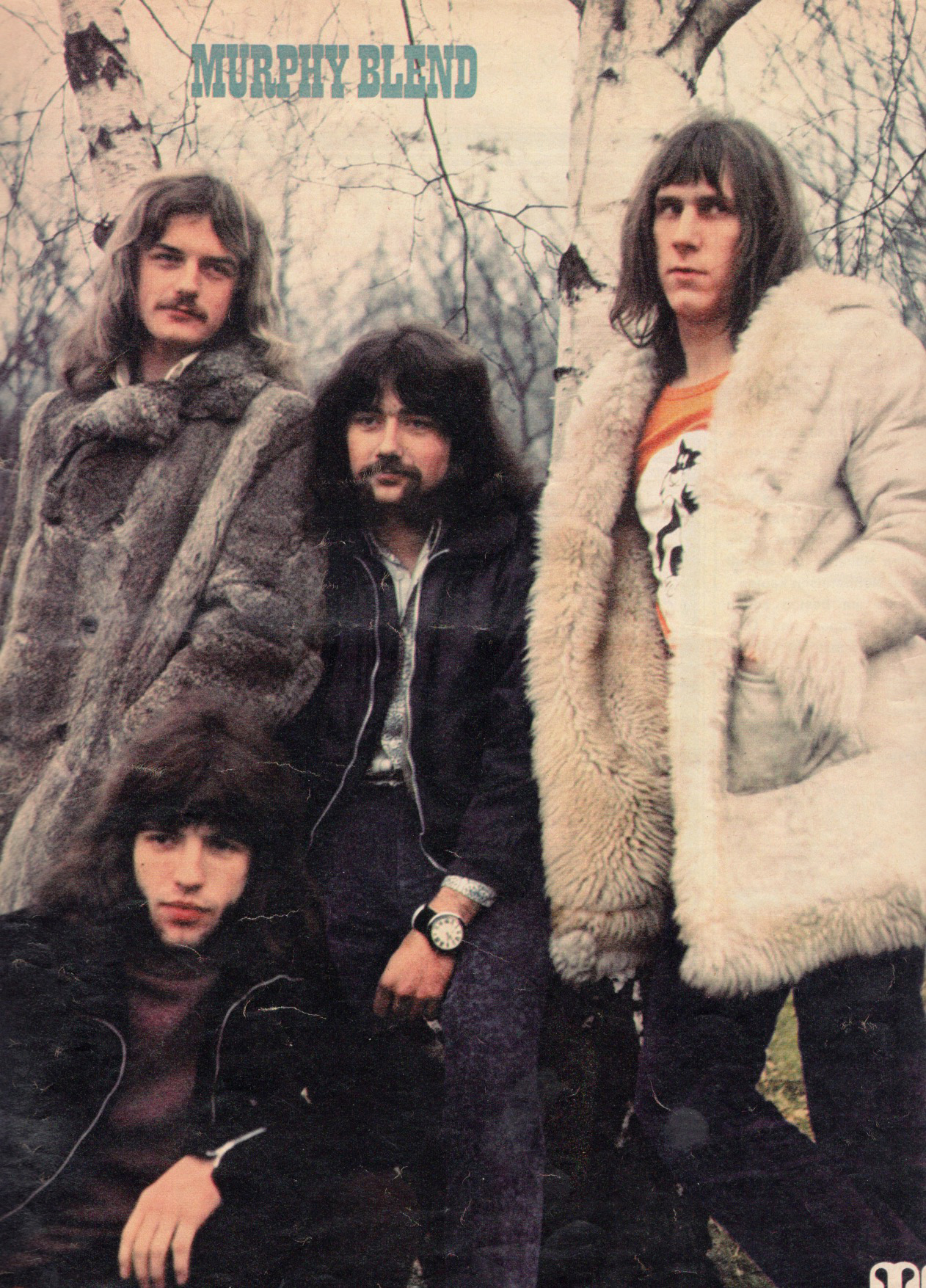
Besides the album, did you release singles as well? Did you get any airplay or even some press at the time?
Unfortunately, there were no single releases, but some titles appeared on sampler LPs. For the LP release, there was, among other things, a double-page feature in the Music Express and in the POP music newspaper, as well as smaller press releases. In the film “Ich ein Groupie,” we had a band appearance, and Wolfgang Rumler (photo 3) and I had supporting roles.
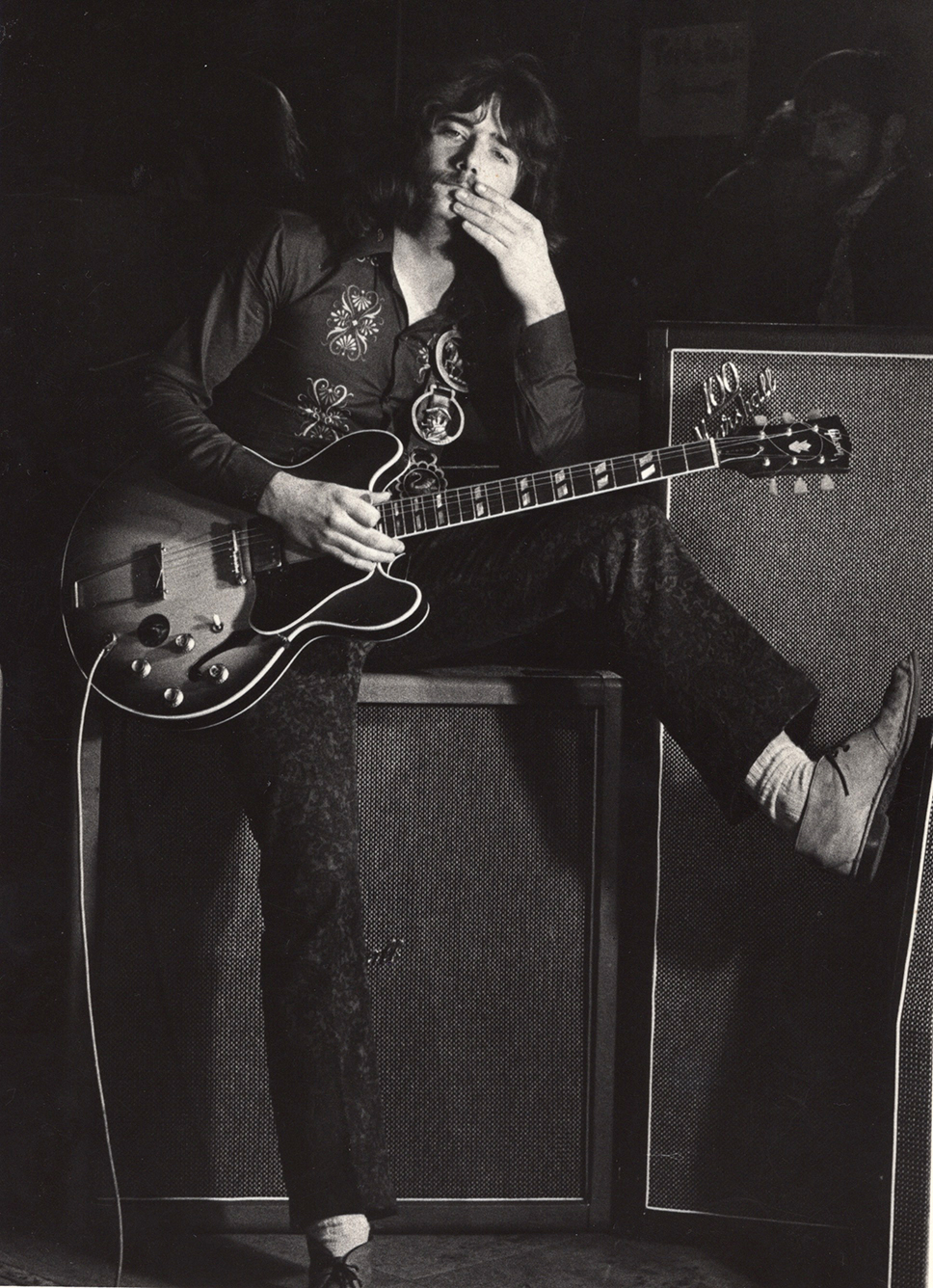
What are some of the strongest memories from recording and producing ‘First Loss’? Was there a certain concept behind it?
Wolf-Rüdiger Uhlig was clearly the brains behind Murphy Blend/’First Loss’. We all subordinated ourselves to his incredible classical music skills. The production in Munich was the first experience in a recording studio for all of us and was therefore correspondingly exciting. I remember one incident in particular. On the second day in the studio, Wolfgang Rumler, our guitarist, got his fingers caught in a cigarette machine. Thankfully, most of his parts had already been recorded, and he was able to record the remaining sequences, although painfully, but still halfway.
‘Happiness’ as the final sequence clearly shows the joy at the end of the strenuous days. Overall, more time and experience would have definitely helped us perfect the recordings.
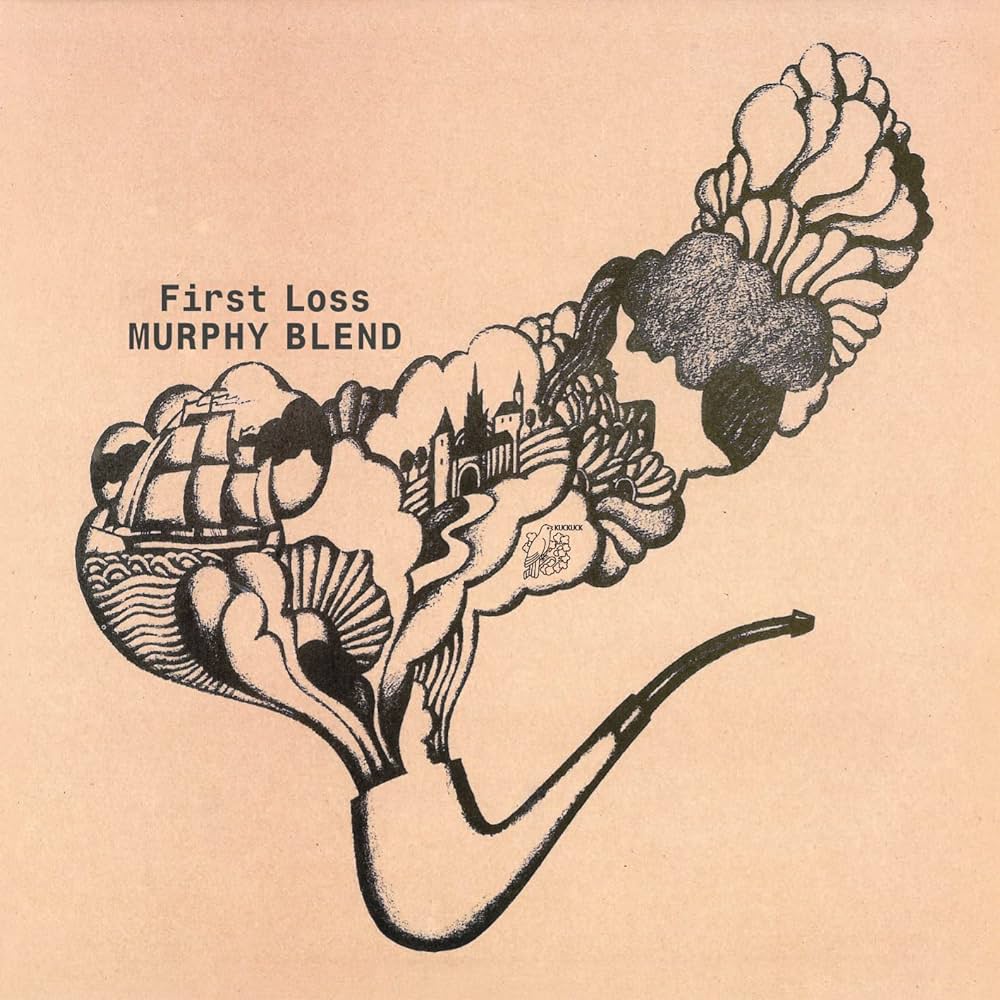
Do you know how many copies were pressed?
Not that many, but unfortunately I can’t say exactly anymore.
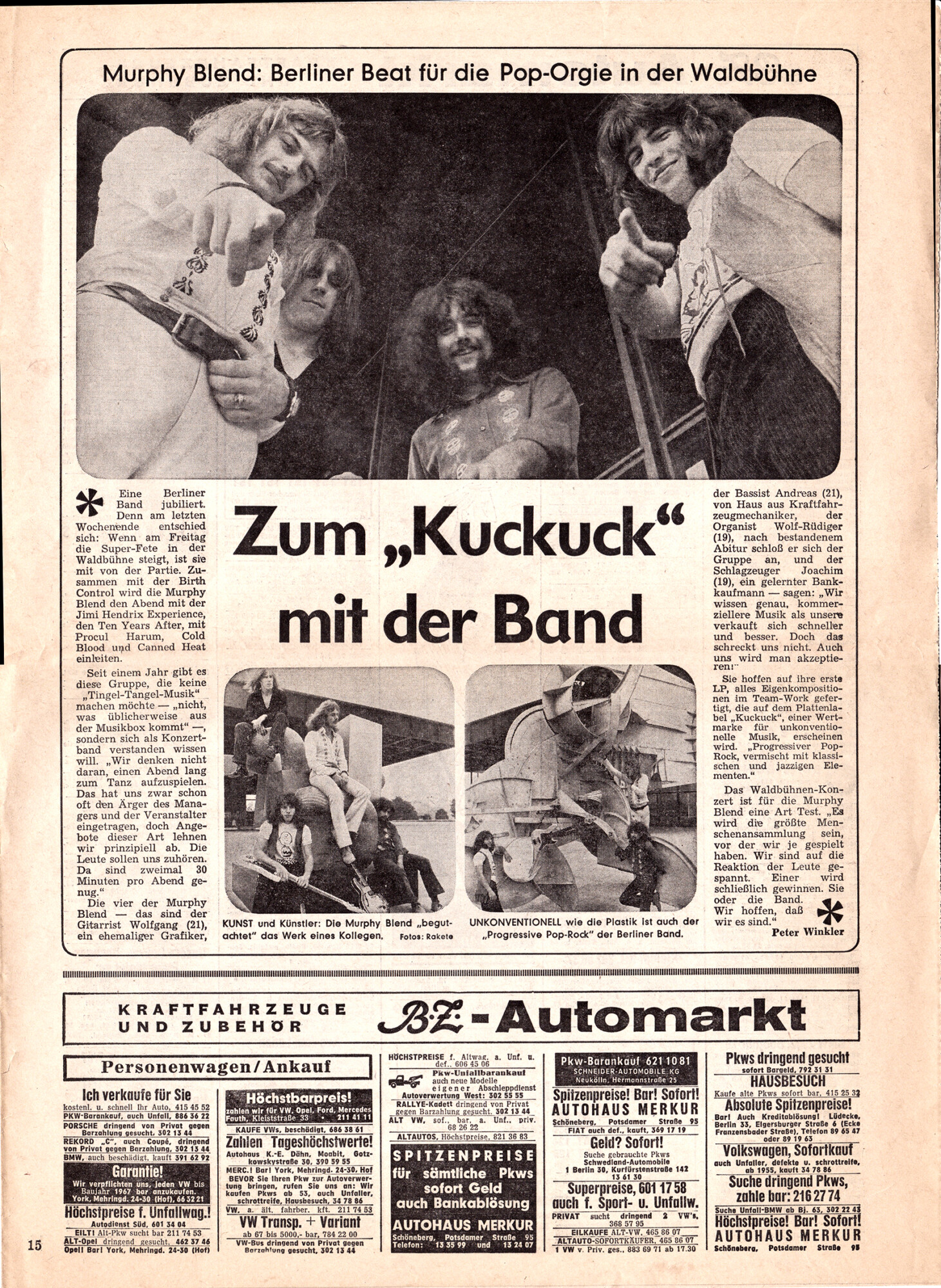
What happened next? What clubs did you play, and what are some of the bands you shared stages with?
Actually, there weren’t that many concerts after the release. In addition to smaller club concerts, we also played with Golden Earring and Savage Rose in Berlin and at a monumental gig in Berlin’s Deutschlandhalle as support for Jimi Hendrix and Canned Heat.
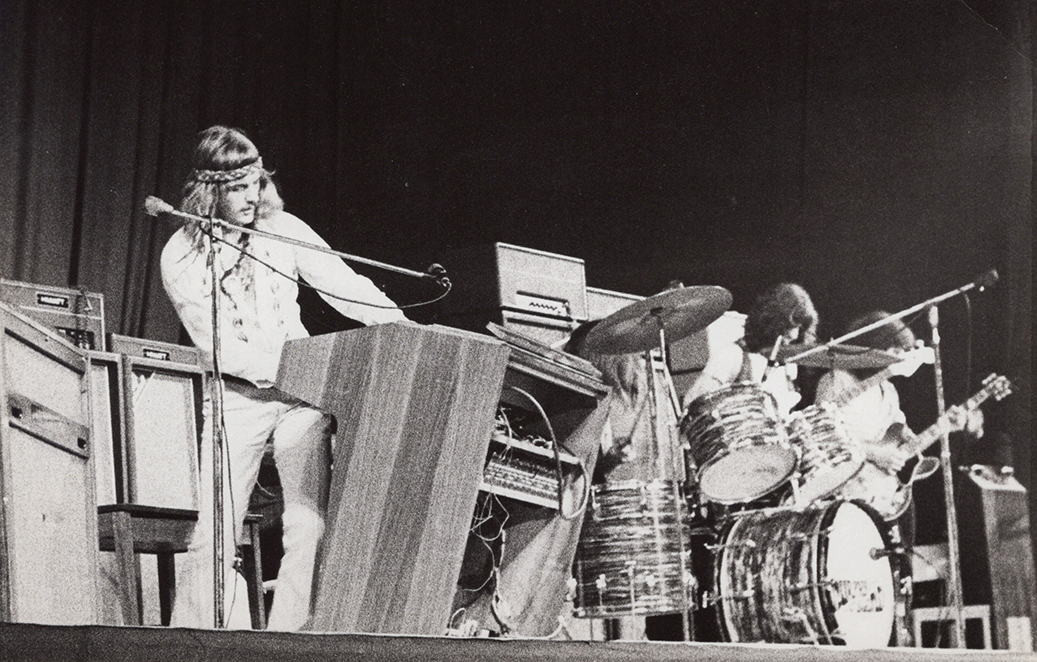
“Murphy Blend’s music was too heady”
When did the band stop and what led you to the formation of Blackwater Park?
Murphy Blend’s music was too heady for me, and I wanted to play down-to-earth rock again. Since Wolf-Rüdiger Uhlig also wanted to take a different direction, we dissolved Murphy Blend at the beginning of 1971.
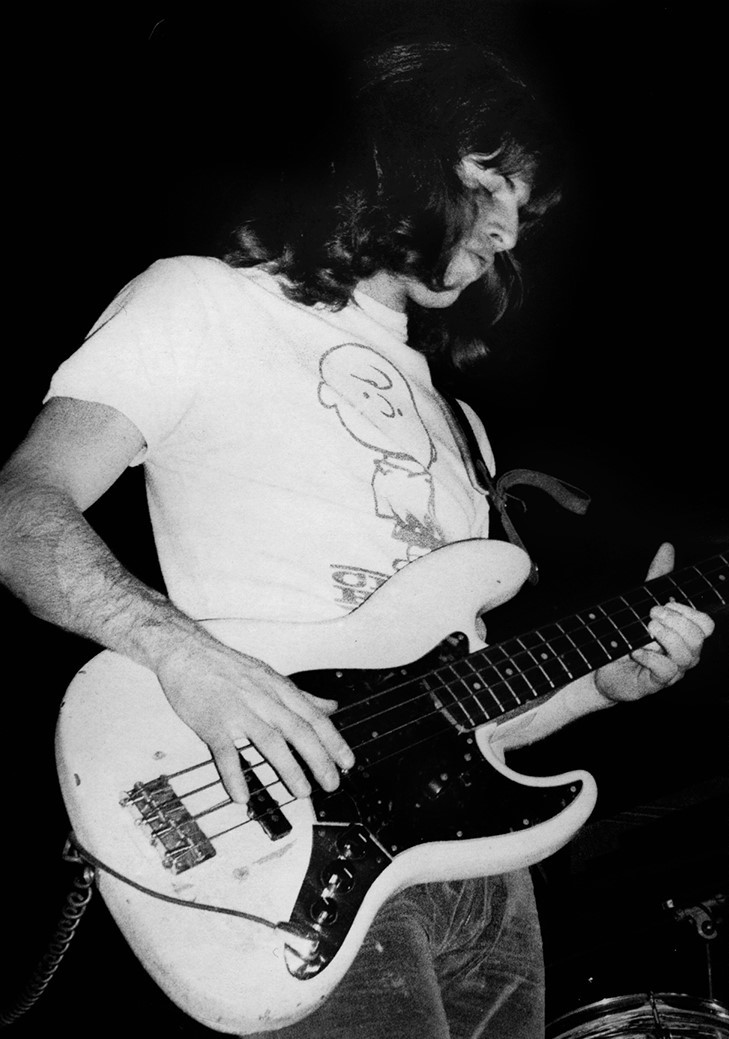
How did you get in touch with Richard Routledge and other members of Blackwater Park?
In my environment, there was a guitarist (Michael Fechner) and a drummer (Norbert Kagelmann) who were looking for a bass player for their own compositions. After a short audition, I joined them – “Blackwater Park” was born. At first, there were only three of us playing our gigs. The drummer was responsible for singing. In addition to a few Berlin gigs, we also performed at the Herzberg Festival with this line-up. At that time, Richie Routledge was the singer in the Berlin band Twangy Gang, who had the same manager as us. When Routledge wanted to make a change, our manager put us in touch, and he joined us. It worked immediately, and he contributed many song lyrics and several pieces to our repertoire.
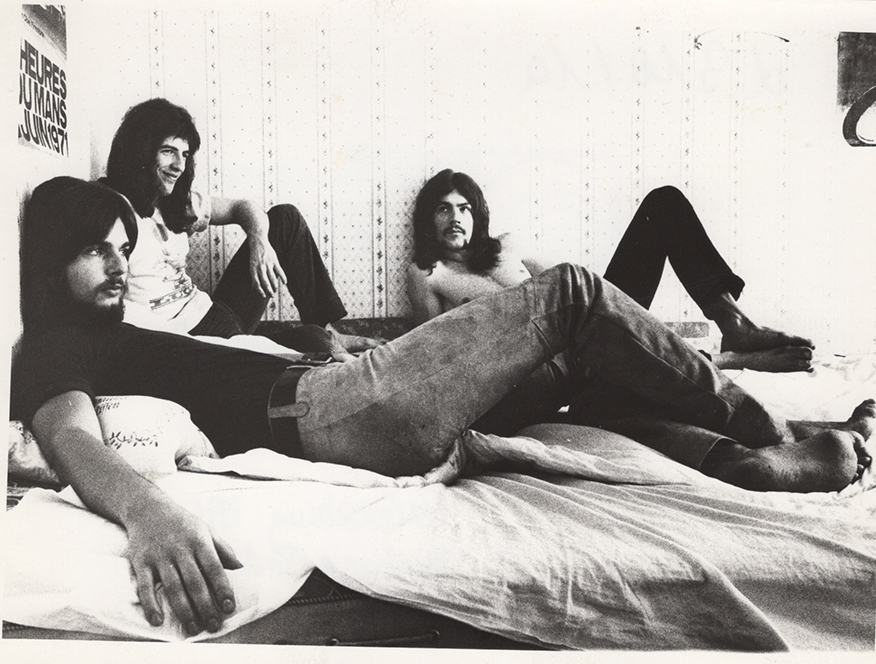
There must be a story about how you named the band Blackwater Park? What about Murphy Blend?
I have no memory of that anymore. Uhlig came up with “Murphy Blend” and Blackwater Park somehow got stuck in a discussion about the name. As a graphic designer, I then took care of the font logos. Unfortunately it had no influence on the covers. The ‘Dirt Box’ cover in particular didn’t convince us. Even the names of Michael Fechner and me were swapped among the photos.
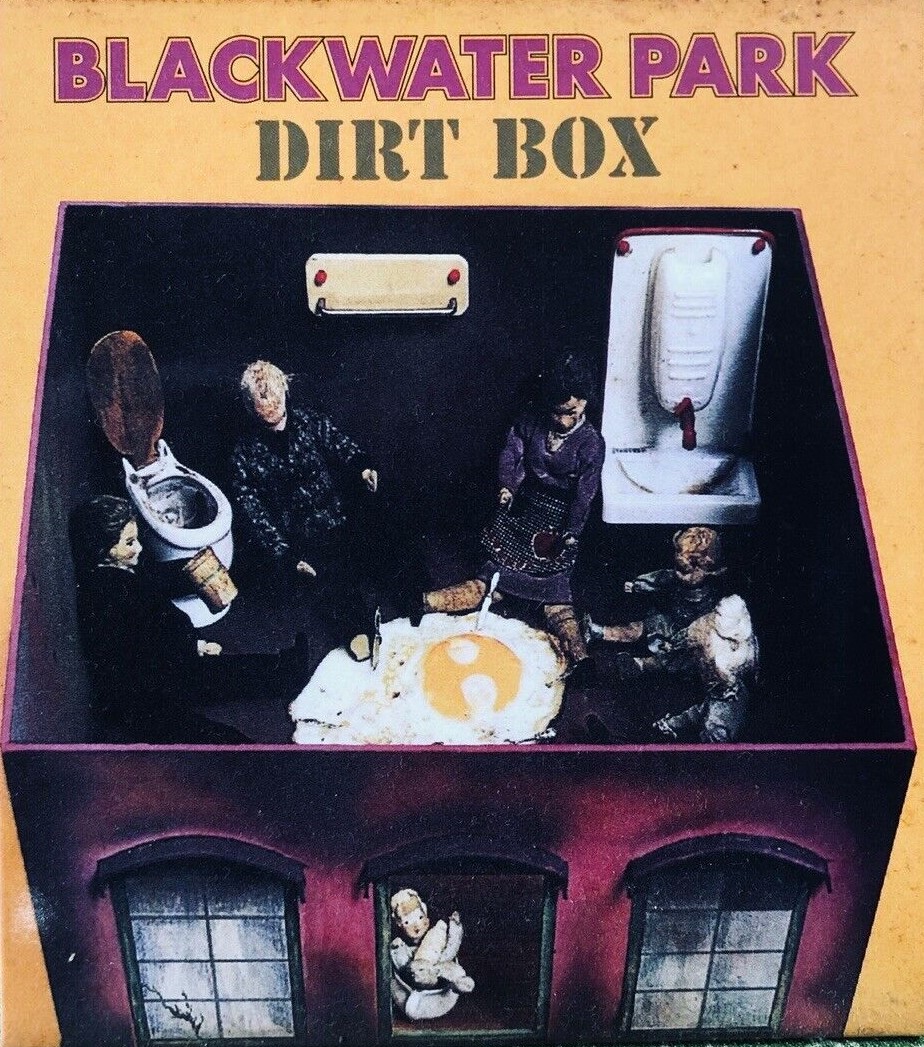
Was there anything else released beside your debut album, ‘Dirt Box’? Any singles?
No, unfortunately, nothing else.
“We discovered during the mix that one of the guitars was completely out of tune”
How did you get in touch with BASF and what were the circumstances surrounding the album making?
How did you get in touch with BASF and what were the circumstances surrounding the album making?
Our manager, Joachim Wilhelm from the JOWI press service, helped us again. He made contact with BASF, who were interested in the music business at the time. A colleague came to a gig and was immediately impressed. However, we only had three days in the Hamburg studio for the entire production. This ended in disaster for the band. On a Routledge song – I think it was ‘Roundabout’ – we discovered during the mix that one of the guitars was completely out of tune. We had to delete the audio completely; a new recording was not approved. Then there were discrepancies in the final mix, and Richie Routledge freaked out. He picked up his bag and angrily left the studio. We never saw him again!!!
What does the album artwork represent?
No idea. We had come to terms with it. We weren’t thrilled. There was no discussion about it.
How pleased was the band with the sound of the album? What, if anything, would you like to have been different from the finished product?
For a successful album, you need time, calm, no rush, and a professional mixer. Unfortunately, we didn’t have any of that, so you have to be happy with the result given the conditions.
Tell us about the gear you had in the band?
I had a 200 Marshall tower (2 speakers), a Fender Jazz Bass, and a Rickenbacker Bass.
How often did Blackwater Park play live back then? What are some clubs and bands you shared stages with?
Since we were without a singer after the studio, we first started looking for a successor. BASF was an absolute mistake when it came to promotion; apart from an autograph card, nothing happened from the record company. After we found a new singer in Felix Vietor and filled the second guitar with ex-Murphy Blend man Wolfgang Rumler, there were increasing differences with our drummer. We played another concert as part of a German rock festival at the Waldbühne in Berlin and in a few small clubs, then the drummer announced his departure. After the drummer was replaced with Achim Schmidt, a former Murphy Blend member, my enthusiasm for the band also decreased, especially since I wanted to continue pursuing my professional career. At the end of a month’s gig in a club in Bremerhaven, I sold my entire system to the English band that was supposed to play in the club after us.
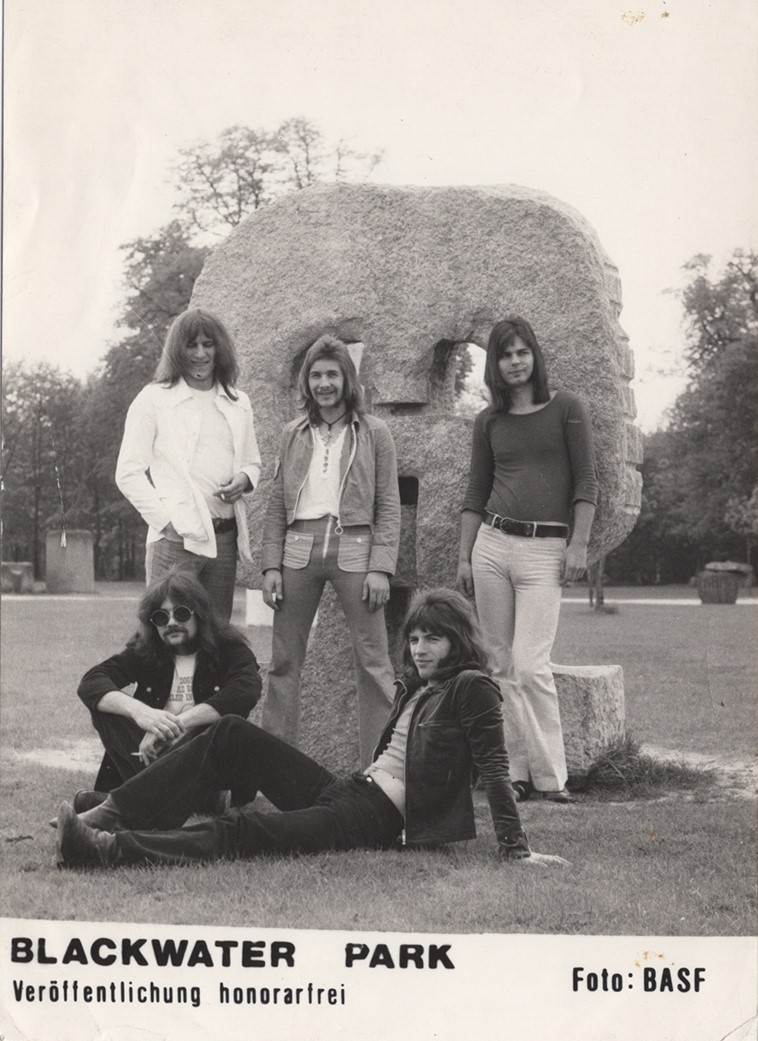
What would be the craziest gig you ever did?
In Bremerhaven. More people on stage than in the club.
Have you ever experimented with psychedelics?
No, never.
What happened after the band stopped (and when was that)? Were you still in touch with other members? Is any member still involved with the music?
As far as I know, the band completely broke up at the end of 1973. I had closer contact with the drummer Achim Schmidt until his death in 2022. Every now and then I still meet with drummer Norbert Kagelmann, who now only plays the guitar and sings in a cover band. Every now and then I talk on the phone with Wolfgang Rumler and Wolf-Rüdiger Uhlig, both of whom no longer live in Berlin and neither of whom makes music anymore. Blackwater Park’s lead guitarist Michael Fechner died at least 20 years ago. I started making music again 4 years ago and have been playing in a hard rock band for a year, but it hasn’t taken off yet.
Looking back, what was the highlight of your time in the band? Which songs are you most proud of? Where and when was your most memorable gig?
A highlight was certainly the performance in the Deutschlandhalle, which was packed with 15,000 spectators, as Hendrix’s opening act. Otherwise, there have been many great experiences over the years that I wouldn’t want to miss. I’m actually proud of everything because it came about under difficult conditions, but at least it turned out pretty well.
Is there any unreleased material by Murphy Blend and Blackwater Park?
I had a studio tape of a Blackwater Park track that couldn’t be finished due to time constraints. I intended to have the tape digitized by a friend, but unfortunately, it was lost.
What are some of the most important players that influenced your own style and what in particular did they employ in their playing that you liked?
I didn’t feel influenced because the bass players I admired were far more capable than me. I admired their technique and creativity. To name just two names: Jack Bruce and Andy Fraser.
What currently occupies your life?
I sold my advertising agency two years ago and am now retiring at the age of 75. I’m married, have two grown daughters, still play tennis and table tennis, advise former clients of mine every now and then, travel a lot, and make music again.
Thank you for taking your time. Last word is yours.
Dealing with your questions brought back many experiences and fondly remembered earlier times. Thanks for that! I’m surprised at what I’ve experienced, even though music has only played a small part in my entire life.
Klemen Breznikar
Headline photo: Murphy Blend live in Berlin as support for Jimi Hendrix and Canned Heat

